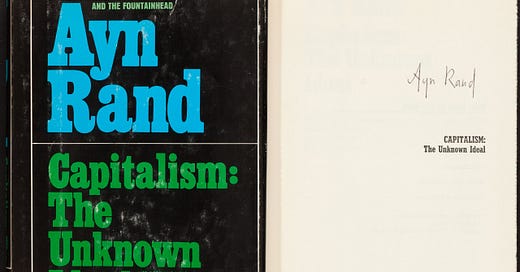Contra Salon, Capitalism, as Ayn Rand Said, Has Never Existed—But Should
By Ari Armstrong
That Salon has again published an attack on Ayn Rand is no surprise; many on the left are obsessed with attacking Rand—a trend that indicates the growing cultural influence of her ideas. At least the latest such attack, written by C. J. Werleman, is not nearly as nasty as are previous Salon articles; however, Werleman still misrepresents Rand’s ideas an…
Keep reading with a 7-day free trial
Subscribe to The Objective Standard to keep reading this post and get 7 days of free access to the full post archives.




